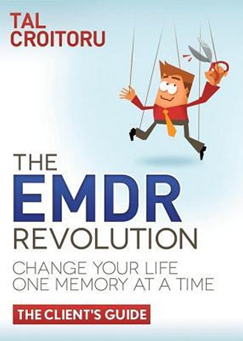- A psychological therapy that uses neuroscience and the brain’s innate healing capacity to increase well-being and overcome challenges.
- A scientific, measurable and extremely fast psychotherapy (3-12 sessions for specific issues).
- Developed initially in 1987 to resolve trauma symptoms within weeks that previous methods of therapy could not resolve in years.
- After proving its effectiveness in difficult cases after only a few weeks, it was adapted for use in a wider variety of psychological obstacles.
Why haven’t I heard of this already?
- EMDR was developed in 1987. In most cases, it takes many years for effective therapies to become well known.
- Many EMDR therapists still focus on its original treatment, and use it mainly for post-traumatic stress. However, EMDR has now proven effective in aiding emotional distress and improving performance since the 1990s.
- At Island EMDR, we strive to get the word out about this treatment and its wide scope: relieving distress, resolving crises, changing problematic behaviour patterns, and eradicating internal obstacles, as well as improving personal achievements.
EMDR is recognized and approved; it is an evidence-based therapeutic system, recognized by the top internationally renowned bodies, including The American Psychological Association and The American Psychiatric Association.
EMDR has proven to be effective in treating the following issues:
- PTSD
- Childhood trauma/traumatic memories
- Anxiety/panic attacks
- Depression
- Intense fears or phobias (fear of flying, etc.)
- Anger and rage problems
- Social anxiety
- Feeling unlovable/the fear of being alone or abandoned
- Guilt and shame
- Addictions
- OCD/compulsions and habit control
- Dissociation/DID
- Life transitions including divorce recovery, childbirth, aging, etc.
- Insomnia and sleep disorders/difficulty relaxing
- Medical/surgical/diagnosis trauma
- Attachment disorders
- Eating disorders
- Sexual/physical/emotional abuse
- Surviving assault, accidents robbery, or rape
- Loss or injury of a loved one
- Self-harm
- Low self-esteem
- First responders with disturbing memories
- Relationship and interpersonal problems
- Difficulties with trust
While EMDR can’t remove a genetic problem or organic injury, it can remove the negative feelings of insecurity, anxiety, fear, or sadness that can come as a result of such problems.
There are generally three categories that problematic feelings fall into: not being good enough, not being safe, or not being in control.
Problems involving negative thoughts and emotions usually result from negative past experiences that are stored in a “raw” format in our brains.
This means that negative thoughts and emotions are symptoms that can be remedied by addressing their cause.
EMDR not only addresses symptoms, feelings, and their causes, but it accounts for all aspects of an individual, including past, present, and future.
I am still reeling in amazement at the depth of the gift that therapy with you has helped me to find. – Client Mr. C.M.
Want to know more?
 EMDR stands for Eye Movement Desensitization and Reprocessing. It is a psychotherapy that uses neuroscience, bilateral stimulation, and the brain’s innate capacity for healing to access the memory networks in the brain. Our minds and bodies continually process information and experiences without any input from us. However, sometimes these innate coping abilities can become overwhelmed, and disturbing experiences then get stored in our brains as a raw emotional charge.
EMDR stands for Eye Movement Desensitization and Reprocessing. It is a psychotherapy that uses neuroscience, bilateral stimulation, and the brain’s innate capacity for healing to access the memory networks in the brain. Our minds and bodies continually process information and experiences without any input from us. However, sometimes these innate coping abilities can become overwhelmed, and disturbing experiences then get stored in our brains as a raw emotional charge.
EMDR allows for the release of emotional charges that are stored there and associated with the experiences that are creating obstacles to your well-being.
Compared with traditional therapies like Cognitive Behavioural Therapy, EMDR proves to be incredibly effective at treating even the most problematic issues in a very short time frame.
EMDR clients often have more lasting results, since the healing takes place on the level of the nervous system.
EMDR is effective for changing thought patterns, emotional responses, behavioural habits, and physical discomfort that people can’t think their way out of using talk therapy.
EMDR works to reverse negative patterns that have developed in the brain, body, and nervous system, and puts in place more useful and effective sensations, tools, skills, and behaviours for dealing with challenges.
After seeing 2 other therapists and thinking our marriage was over, with your help we’re together and stronger than ever, a year later. The foundation has shifted and is solid and deeper. And it’s the way you do things, with respect, gentleness, the right balance of guidance, coaching and practical tools. You’ve led us to discover what we’re capable of on our own. Thank you! -Couple F. & S.T
I can’t believe it. It really works. You’re amazing!! When the trigger happened, I was calm – what used to upset me before made me laugh now! – Client Mr. R.C.
 Enter your email address below and we will send you a copy of the first chapter of the international best seller "The EMDR Revolution."
Enter your email address below and we will send you a copy of the first chapter of the international best seller "The EMDR Revolution."